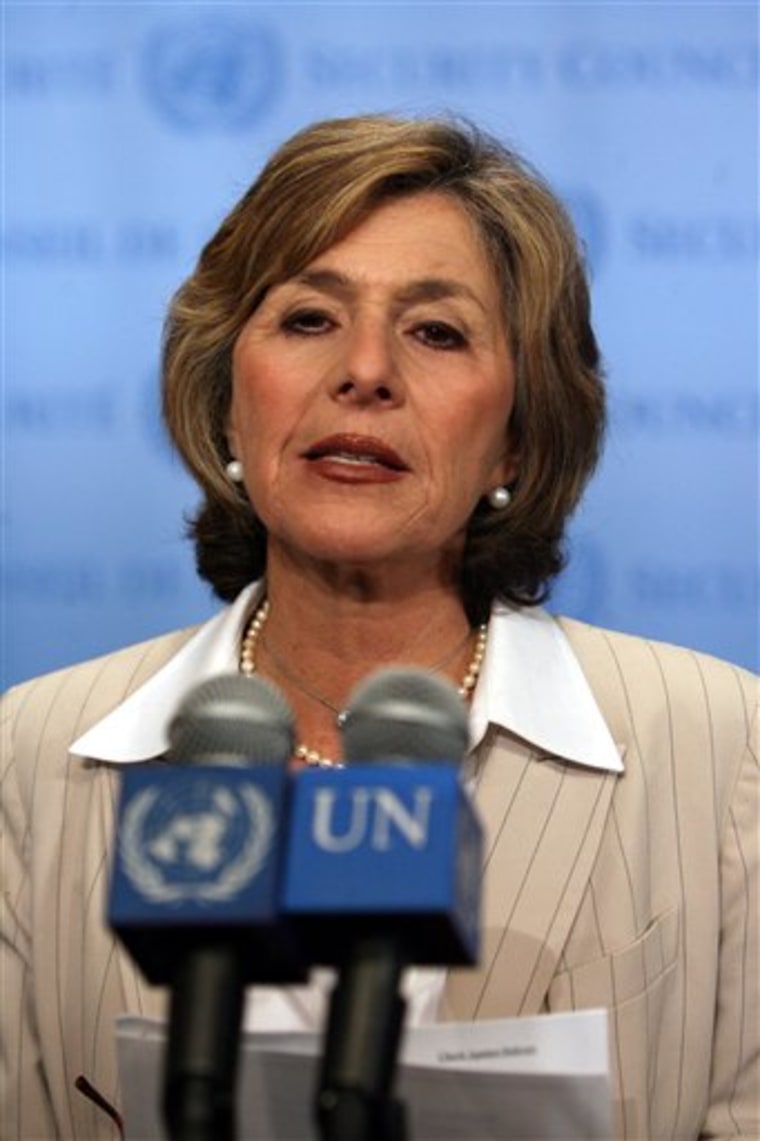A "leap backward" for feminism, the White House spokesman calls it. Nothing of the sort, feminists reply. Mean-spirited, say some. Perfectly appropriate, say others.
However one interprets Sen. Barbara Boxer's remark last week to Condoleezza Rice that the secretary of state, single and childless, doesn't have a "personal price" to pay in Iraq, the brief exchange still has people debating.
And for some women, it highlights a larger question: Just how do you define "personal price" when talking about your country's war?
Who pays the price?
Boxer's comment came during a contentious Senate Foreign Relations Committee hearing last week, as Rice was grilled on Iraq by mostly skeptical senators. "Who pays the price?" asked Boxer, a California Democrat. "I'm not going to pay a personal price. My kids are too old and my grandchild is too young. You're not going to pay a particular price, as I understand it, with immediate family. So who pays the price? The American military and their families."
The reference to Rice's personal status was an instant catalyst for vigorous chatter on blogs, TV and talk radio, ranging from the conservative Rush Limbaugh (Boxer hit "below the ovaries") to the liberal Joy Behar on ABC's "The View" (Rice "deserved it.")
A leap backward for feminism?
As for Rice, who assured Boxer she understood the sacrifice of military families, she later had a more pointed response, telling Fox News: "Gee, I thought single women had come further than that." On the same network, White House spokesman Tony Snow called Boxer's remark "a great leap backward for feminism."
Not to the country's most prominent feminist, Gloria Steinem, who said Snow's remark "takes your breath away."
"It had nothing to do with feminism," Steinem told The Associated Press. "It was perfectly reasonable, and it could have come from anyone - a grandfather as well as a grandmother. Sen. Boxer was trying to draw a parallel" between herself and the secretary.
For Christina Hoff Sommers, a scholar at the conservative American Enterprise Institute, Boxer's comments were not so much a "leap backward" as merely "mean-spirited and thoughtless," not to mention "sexist and politically absurd."
"She seems to be saying that an unmarried, childless woman should not be involved in decisions that affect traditional families," Sommers said. "By that standard, Susan B. Anthony would be disqualified. And how about Elizabeth I?"
"But I don't expect to hear much protest (from feminists)," said Sommers, "because their left-wing politics always trump their commitment to the cause of women."
Obvious political divides aside, did the Boxer-Rice incident tap into genuine feelings among ordinary Americans? Women interviewed seemed much less ready with a quick verdict on the exchange, but said it evoked struggles they're having in their own hearts and minds.
The emotions of Iraq
Linda Martin, owner of a graphics design firm in Miami, hasn't closely followed news of the Boxer-Rice exchange. But she understands what may have motivated Boxer's remarks, which she characterizes as an "emotional way of putting the situation."
"If you don't have kids, it's hard to put yourself in the position of someone who does," said Martin, 53, who has a 19-year-old son. Martin has opposed the war from the beginning. But as it's gone on, she's grown increasingly fearful that one day, her family might have to confront a reinstated draft.
"It's just this nagging thing at the back of my mind," Martin said. "We still don't have an idea how long this war is going to go on. My husband and I have talked about it: What would happen if there was a draft? It's an awful situation to be in."
Barbara Van Bogart is demographically in the same category as Boxer - children that are too old, and grandchildren too young. Yet asked if the draft is ever on her mind, she said, "You bet it is."
"I feel like we've dodged a bullet with our kids," said Van Bogart, 58, of Seattle, who works in the financial field. "I'm not so sure about our grandchildren. I hope they never, ever have to face this."
Marla Lasine, a year younger than Rice at 51, wasn't offended by Boxer's comments, which she didn't interpret as unfair to the secretary. She emphasizes, however, that as a single woman with no children, she feels a strong personal stake in the war like anyone else.
"This war affects me because it affects the guy next door, who does have children," says Lasine of Ft. Lauderdale, Fla.
"I am not distant from the consequences of this war, because this is the country that I live in."
